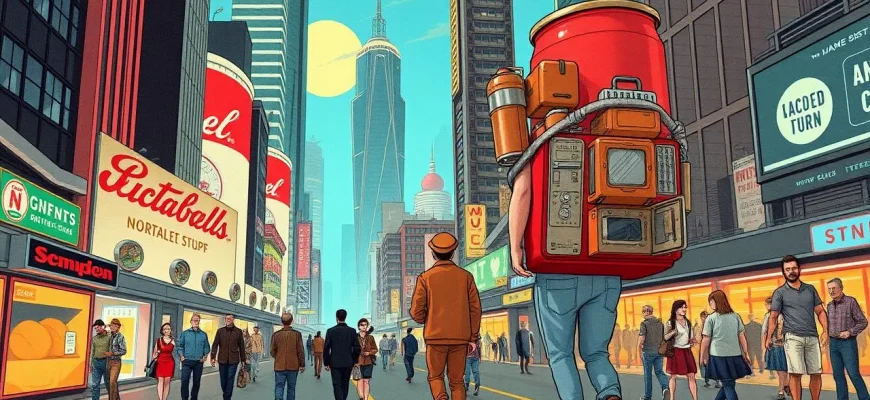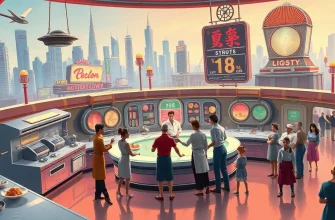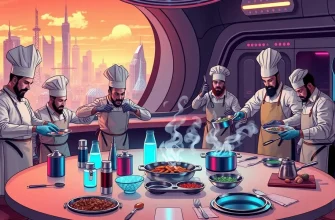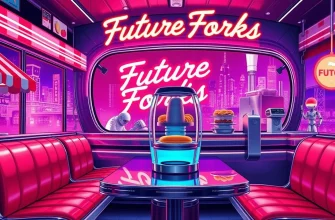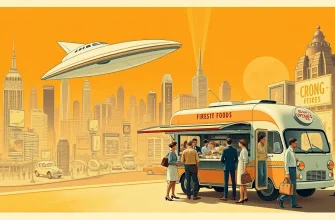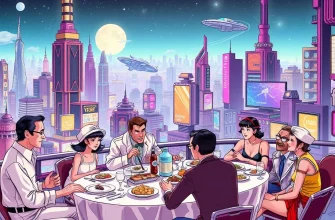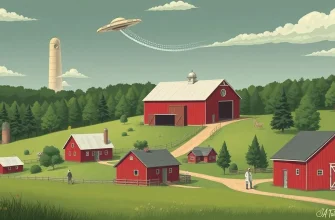In a world where food and health are increasingly intertwined with technology, science fiction has taken the concept of dieting to new heights. This curated list of films delves into futuristic scenarios where diets are not just about weight loss but can alter reality, control populations, or even save the world. Whether you're a film buff or someone intrigued by the intersection of food and futuristic narratives, these films offer a fascinating look at how diets could evolve in the future.
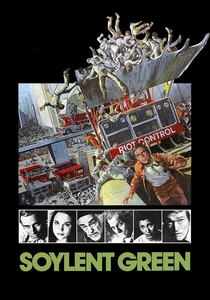
Soylent Green (1973)
Description: In a dystopian future where overpopulation has led to food scarcity, the film explores the concept of a mysterious food source called Soylent Green, which turns out to be made from human remains. It's a chilling look at how diets can be manipulated for population control.
Fact: The film was based on Harry Harrison's novel "Make Room! Make Room!" and the term "Soylent" has since become synonymous with futuristic food substitutes.
 Watch Now
Watch Now

The Matrix (1999)
Description: While not explicitly about diets, the film features a scene where humans are grown for energy, fed a nutrient-rich gruel, and their bodies are used as batteries. This touches on the theme of diets in a controlled environment.
Fact: The idea of humans as energy sources was inspired by the concept of battery farming, where animals are kept in small spaces for maximum efficiency.
 Watch Now
Watch Now

Equilibrium (2002)
Description: In a totalitarian regime where emotions are suppressed, citizens are given a strict diet to maintain their physical and mental health, showcasing how diets can be used for control.
Fact: The film's concept of "Prozium" is reminiscent of real-world discussions about mood-altering drugs.
 Watch Now
Watch Now

The Island (2005)
Description: In this film, clones are kept in a controlled environment, fed a strict diet, and told they are the last hope for humanity. The diet is part of a larger scheme to keep them healthy for organ harvesting.
Fact: The film was directed by Michael Bay and features a futuristic setting where human clones are used for spare parts.
 Watch Now
Watch Now
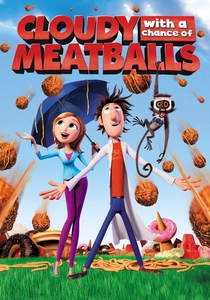
Cloudy with a Chance of Meatballs (2009)
Description: A quirky animated film where a scientist invents a machine that turns water into food, leading to a town where food literally falls from the sky. It's a fun take on the future of food production and consumption.
Fact: The film was inspired by the children's book of the same name by Judi Barrett and Ron Barrett.
 Watch Now
Watch Now
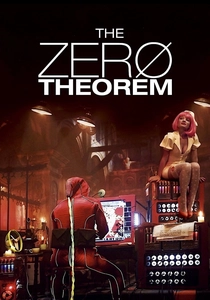
The Zero Theorem (2013)
Description: In this Terry Gilliam film, the protagonist lives in a world where food is delivered by drones, and diets are controlled by corporations, reflecting a future where food is just another product.
Fact: The film features a dystopian setting with a heavy emphasis on technology and control.
 Watch Now
Watch Now
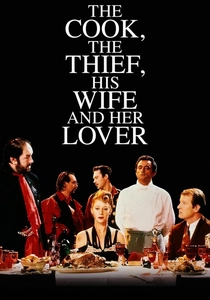
The Cook, the Thief, His Wife & Her Lover (1989)
Description: While not strictly sci-fi, this film explores themes of food, power, and control in a way that feels futuristic. The lavish meals and the control over what is eaten are central to the plot.
Fact: The film was directed by Peter Greenaway and is known for its opulent set design and controversial themes.
 30 Days Free
30 Days Free

The Road (2009)
Description: Set in a post-apocalyptic world, the film focuses on survival, where food is scarce, and diets are reduced to whatever can be scavenged. It's a stark look at the extremes of dietary deprivation.
Fact: The film is based on Cormac McCarthy's Pulitzer Prize-winning novel.
 30 Days Free
30 Days Free
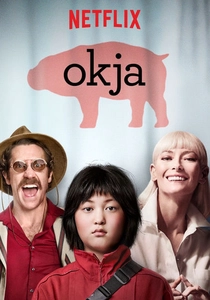
Okja (2017)
Description: This film follows a young girl and her genetically modified super-pig, Okja, as they navigate the world of corporate greed and the future of food production. It explores the ethics of genetically modified organisms in our diets.
Fact: The film was produced by Netflix and features a mix of live-action and CGI, with the pig Okja being entirely CGI.
 30 Days Free
30 Days Free

WALL-E (2008)
Description: While not directly about diets, the film shows a future where humans are so dependent on technology that they've become obese, living on a diet of processed food, highlighting the consequences of a sedentary lifestyle.
Fact: The film took six years to make and was praised for its environmental message and depiction of future human society.
 30 Days Free
30 Days Free

